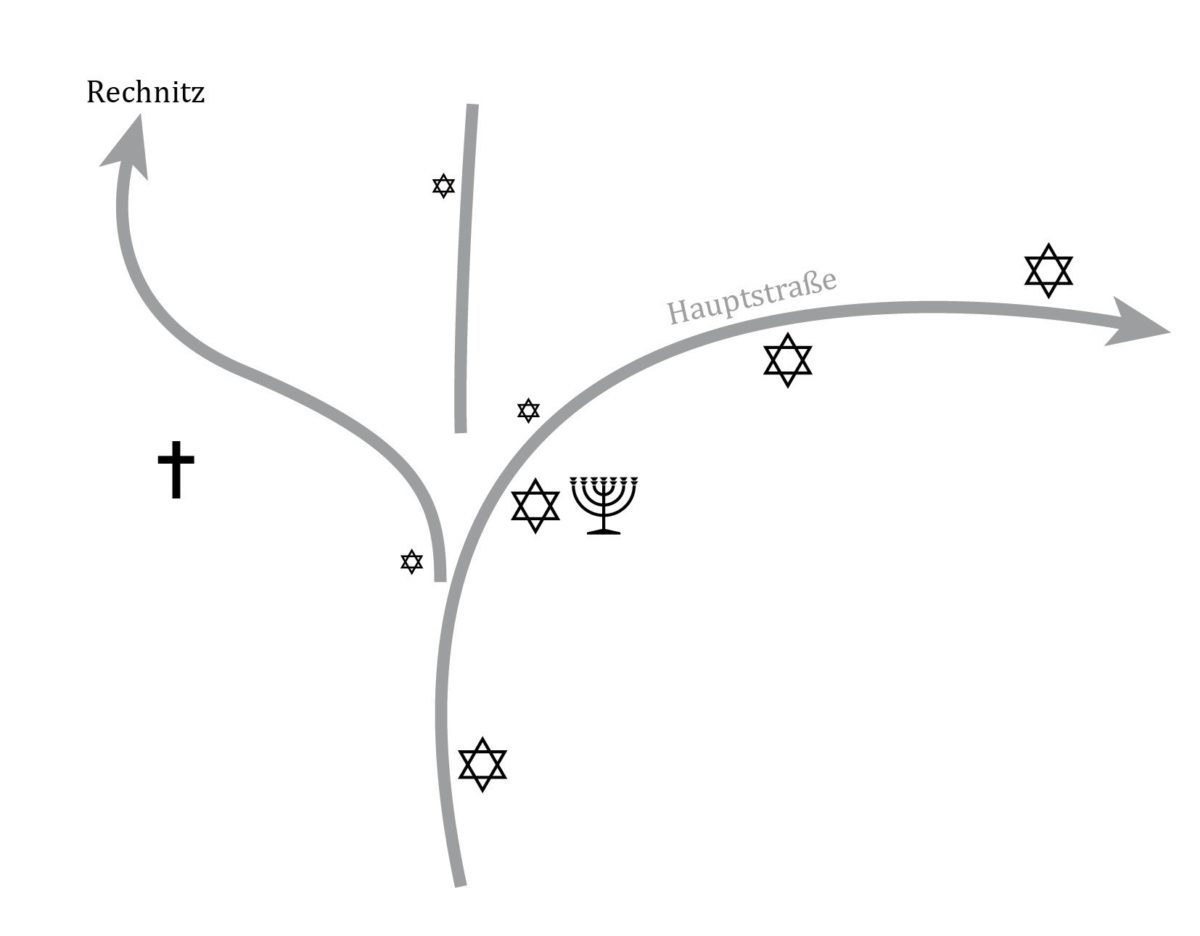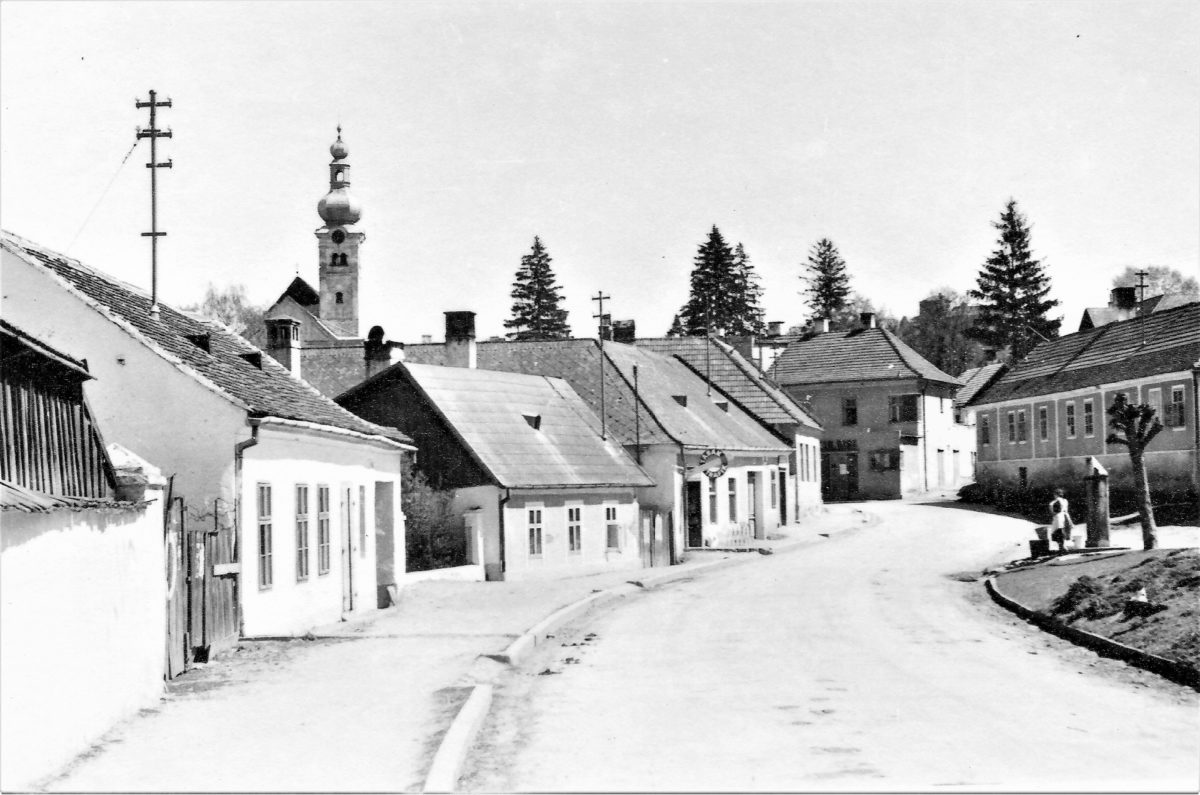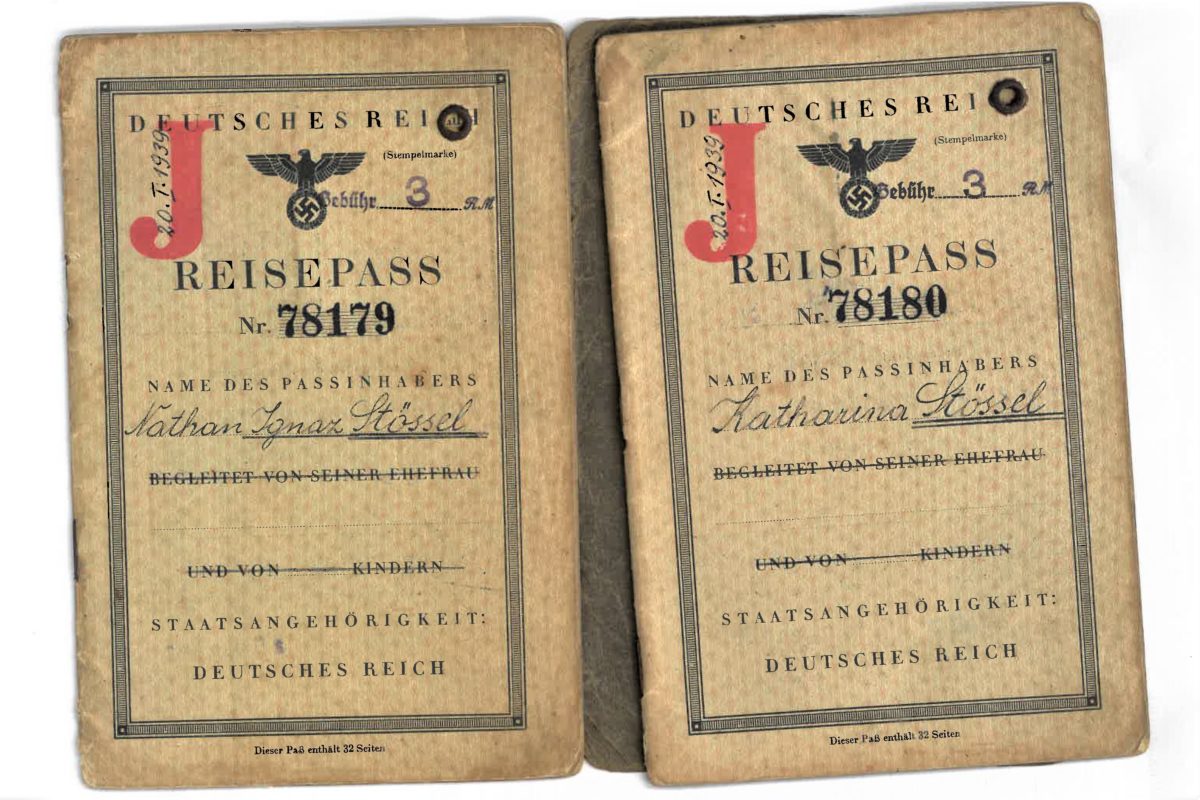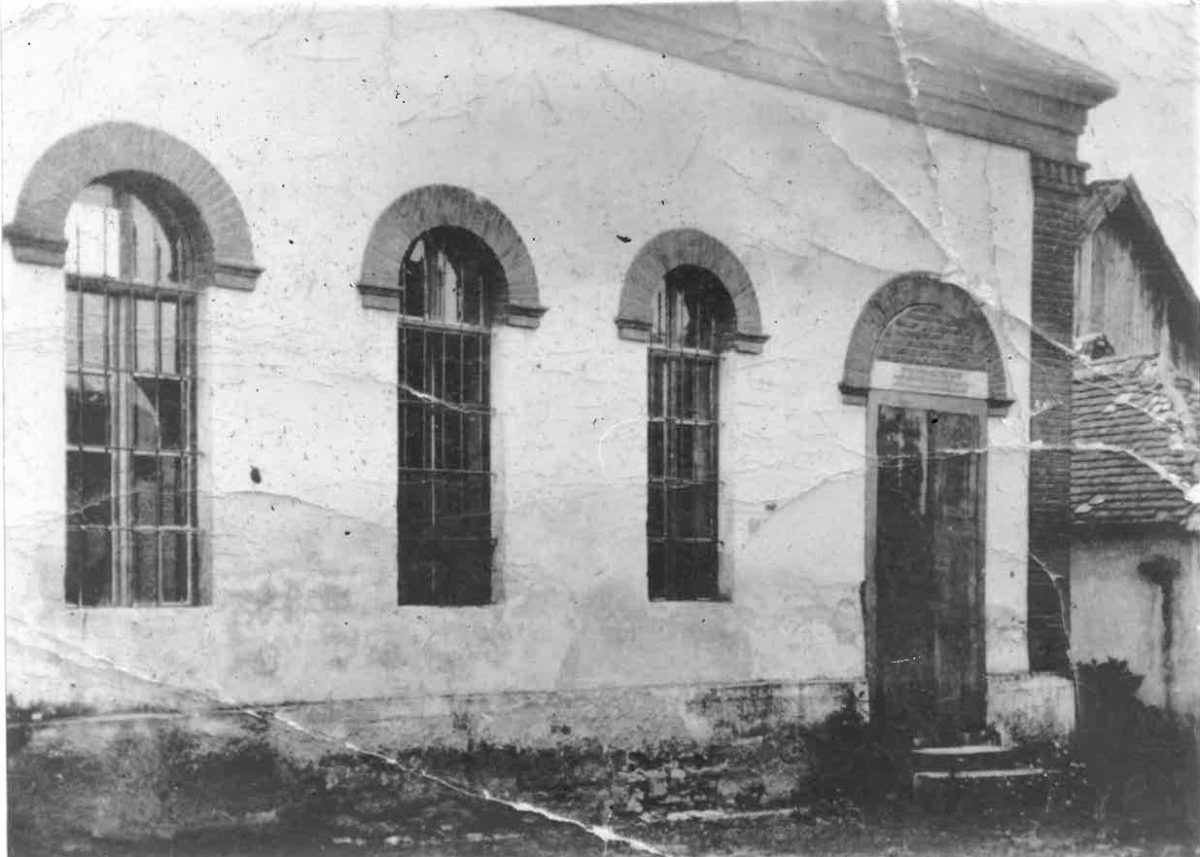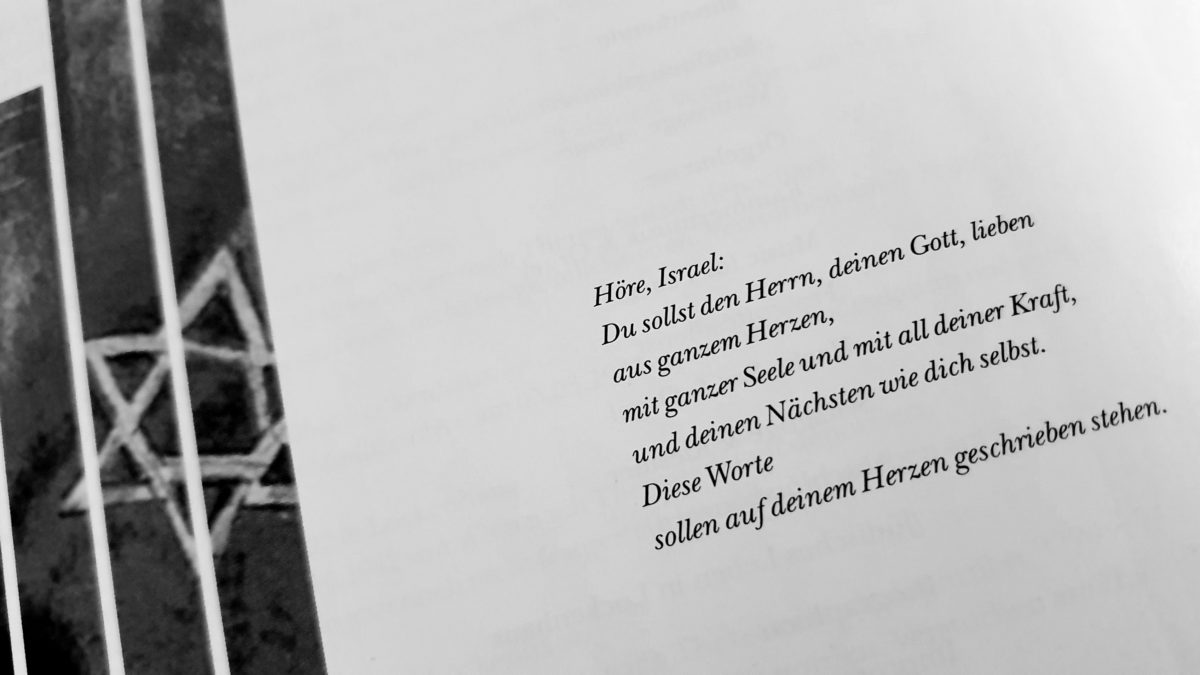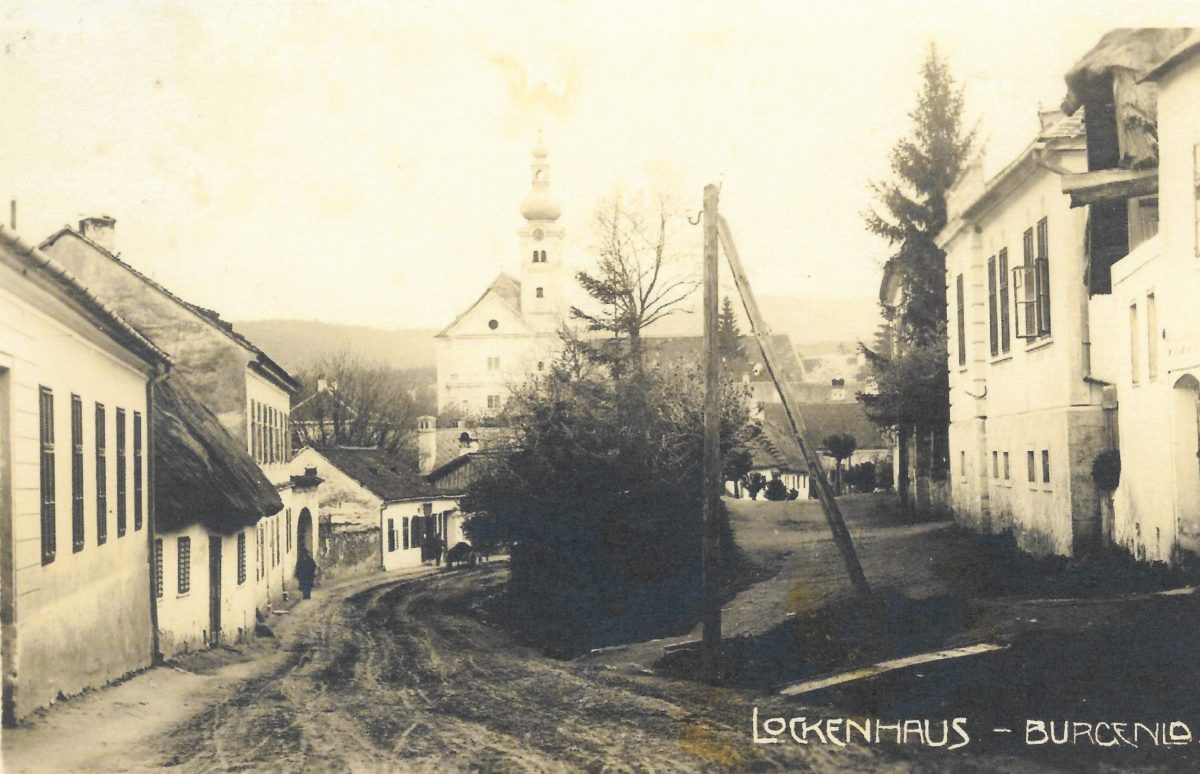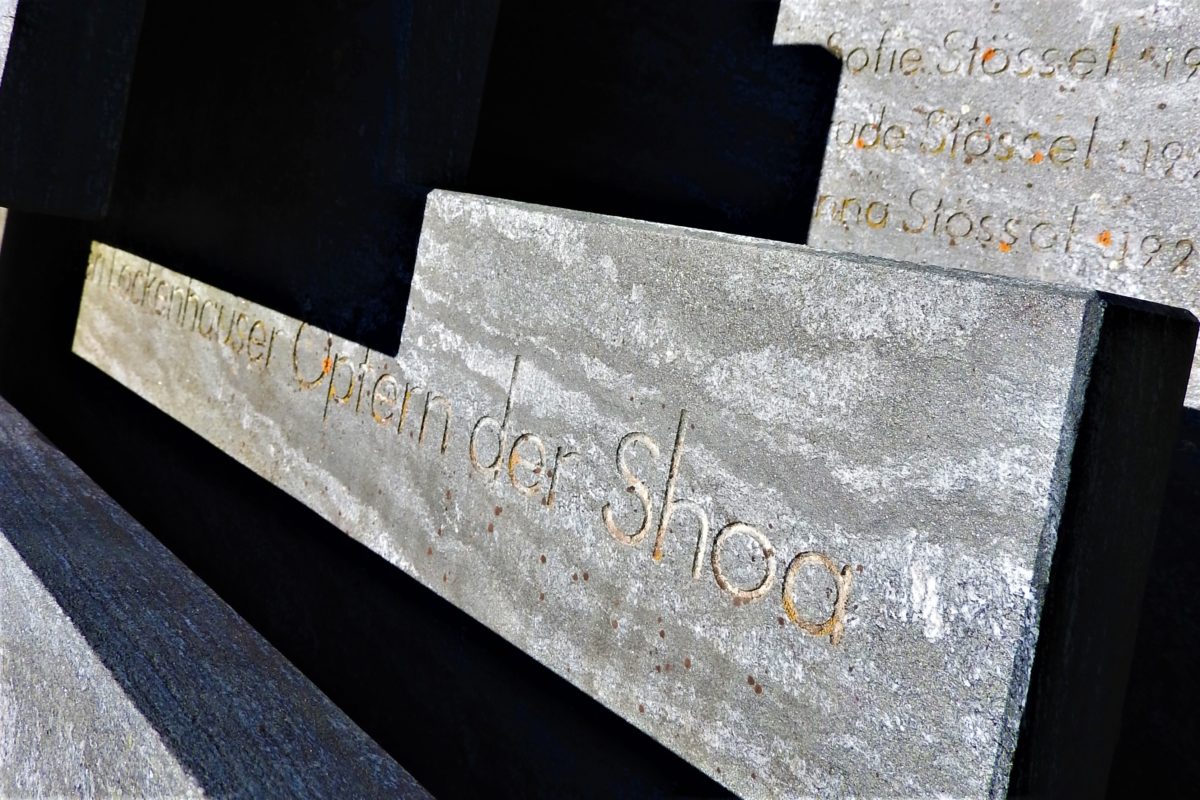Traces
The Jewish culture in Lockenhaus has disappeared. The Jewish life of Lockenhaus was extinguished. People of Jewish faith were expelled from Lockenhaus. Thirteen Jewish neighbours were demonstrably murdered in concentration camps between 1942 and 1944. Some were able to escape the Shoa (the Holocaust), their descendants now live in Israel, England, Canada and the USA.
Spurensplitter
- Some of the victims of the Shoa who came from Lockenhaus already did not live in Lockenhaus anymore in 1938. In Oberwart lived the Stössel family (Max Mordechai Zwi and Regina/Recha with their five children). How many years they lived in Oberwart can no longer be determined, because the community files from that time were burned. Today a memorial plaque on the building of the former synagogue in Oberwart commemorates the victims of the Shoa: "In memory of the suffering of our former Jewish fellow citizens. Their prayer house stood here. It was destroyed by the Nazis in 1938." There is also a commemorative path in Oberwart in memory of the victims of National Socialism. The building of the former synagogue today houses the Central Music School. How the Stössel family fared in Oberwart and when they travelled to Vienna is not known.
- Some time before 1938 Emanuel Stössel lived with his wife Valerie (née Breuer) in Mödling. There are two memorial stones - in Klostergasse 8 - in front of the Stössel's former home.
- Before their deportation to the concentration camps, all Jewish people originating from Lockenhaus lived in shared apartments in Vienna, in the 2nd district. The addresses are known - Tandelmarktgasse, Malzgasse, Flossgasse, Herminengasse - but there are no traces or memorial stones. Only the date of their deportation is known. The suffering, the fears and the panic cannot even be guessed.
- The fate of the seven-member Stössel family (Max and Regina and the children Wilhelm, Moritz, Sofie, Gertrude and Johanna) leaves us speechless. They all wanted to stay together and therefore the parents did not send their two youngest children to England on a possible, and perhaps life-saving, children's transport. A passage to Trieste, and on to Bolivia was already paid for the whole family at a forwarding agency, the Maccabi Sport Organization in Vienna treid to help, but it was too late. The family could not save themselves, they were deported to Theresienstadt in October 1942. Six members of the family were murdered in Auschwitz, the second born son Moritz died in Dachau, only a few weeks before the camp was liberated!
- On Lockenhaus' municipal territory there is a wooded area, called "Hutweide", where in the land register of a narrow strip of woodland - the then so-called "Judnhutwoard" - the name Emanuel Stössel still appears as the owner of the shares. But who still knows this today? Is this known by anyone in Lockenhaus? And are there still traces of the Jewish history of Lockenhaus in the attics in the old houses?
- About the former community doctor Dr. Alexander Süss there are some stories, tales and anecdotes that were told about him and if you ask some people in Lockenhaus today, they can still be told.
- On the website of Yad Vashem there is a photo of Julie/Jultscha and Maier/Maitsch Stössel and also memorial sheets - also of Maier's mother Bertha.
- Irene Süss's name is written on one of the ten steles of the memorial in Maly Trostinec. Her name is also mentioned in the book " Maly Trostinec- The Book of the Dead" by Waltraud Barton. In Lockenhaus nothing reminds of the daughter of the municipal doctor.
- In 2003, the "Sh'ma Israel - Höre, Israel" was inserted into the Lockenhauser church organ as a foundation charter, a document written by hand by Janka Baron (née Stössel). A beautiful gesture of this woman once driven out of Lockenhaus.
…- im Klang des neuen Instruments soll auch die Spiritualität der jüdischen Einwohner mitschwingen, die Lockenhaus 1938 für immer verlassen mussten. Unter dem Motto "Shalom" stehen Instrumental- und Vokalwerke rund um das Thema Jüdische Musik im Mittelpunkt von ORGELockenhaus 2005. ...Shalom in den Menschen zum Klingen bringen und so die uralte Vision vom Frieden in den Herzen leuchten lassen." (Wolfgang Horvath im Almanach/Orgelfestival 2005)
The search for traces begins with remembering, making the traces visible begins with commemoration. The memorial - designed in 2008 by Barbara Horvath - is a visible sign that people in Lockenhaus are aware of the history of the village. But the memorial must be visible and not hidden behind a high hedge! The political community of Lockenhaus is just on its way...
- Ruth Patzelt, August 2019
The search for traces of Jewish life in Lockenhaus is a "work in progress". As sources for the research were and are used:
- geni.com; arolsen-archives.org; katalog.terezinstudies.cz; ushmm@org
- Ursula Mindler, Die jüdische Gemeinde von Oberwart, Lex Liszt Verlag, Seite 129-131 und Ursula Mindler, Grenz-Setzungen im Zusammenleben. Studienverlag, Seiten 388-392 und die hier angegebenen Quellen.
- Waltraud Barton, Maly Trostinec - Das Totenbuch, Ed. Ausblick, Seite 147
- Denise Steiger, Lockenhaus, Festschrift der Marktgemeinde Lockenhaus, 1992
- Various institutes for history and research; the knowledge of historians, of Jewish friends, and accidental finds.

